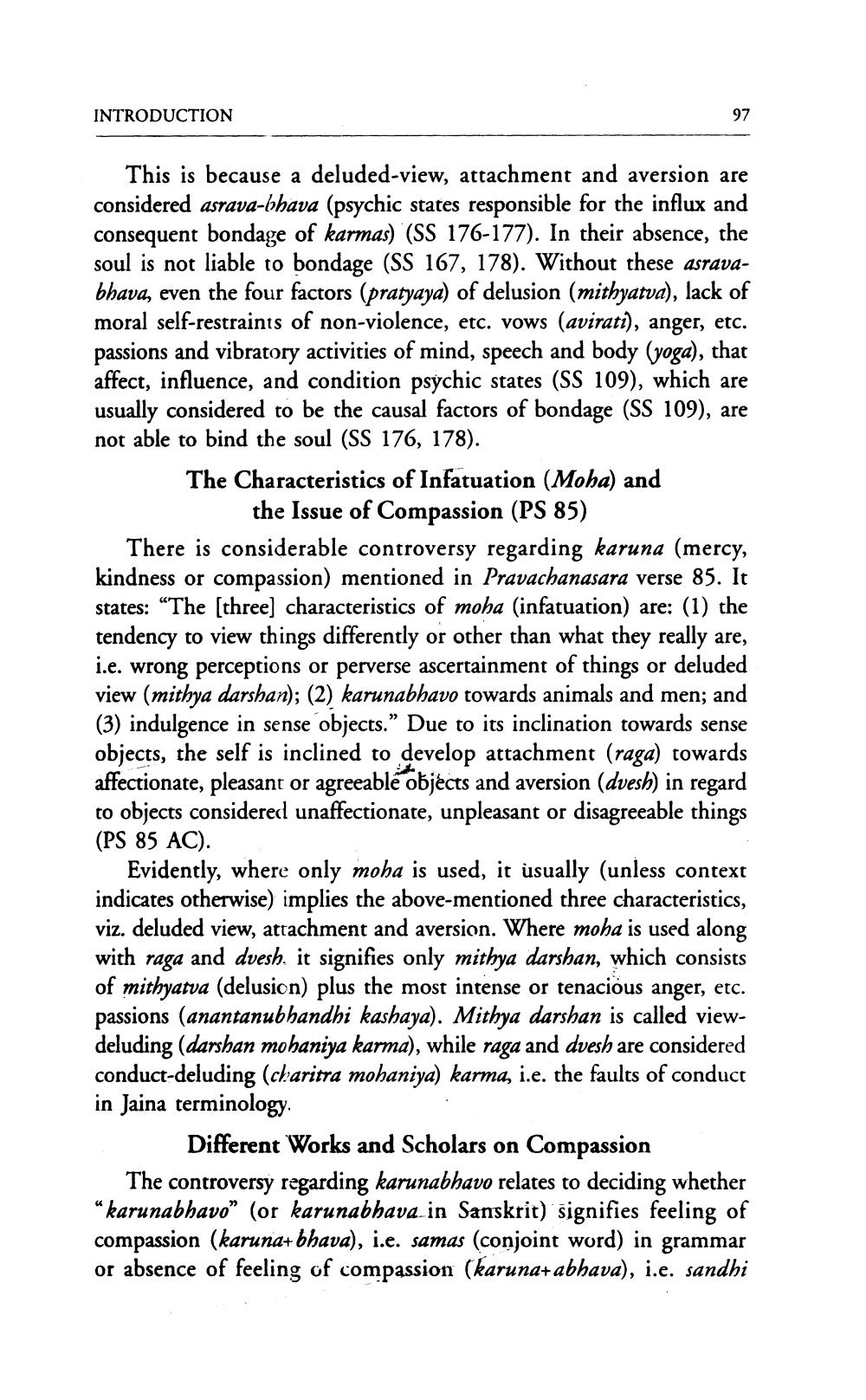________________
INTRODUCTION
This is because a deluded-view, attachment and aversion are considered asrava-bhava (psychic states responsible for the influx and consequent bondage of karmas) (SS 176-177). In their absence, the soul is not liable to bondage (SS 167, 178). Without these asravabhava, even the four factors (pratyaya) of delusion (mithyatva), lack of moral self-restraints of non-violence, etc. vows (avirati), anger, etc. passions and vibratory activities of mind, speech and body (yoga), that affect, influence, and condition psychic states (SS 109), which are usually considered to be the causal factors of bondage (SS 109), are not able to bind the soul (SS 176, 178).
The Characteristics of Infatuation (Moha) and
the Issue of Compassion (PS 85) There is considerable controversy regarding karuna (mercy, kindness or compassion) mentioned in Pravachanasara verse 85. It states: “The (three) characteristics of moha (infatuation) are: (1) the tendency to view things differently or other than what they really are, i.e. wrong perceptions or perverse ascertainment of things or deluded view (mithya darshan); (2) karunabhavo towards animals and men; and (3) indulgence in sense objects.” Due to its inclination towards sense objects, the self is inclined to develop attachment (raga) towards affectionate, pleasant or agreeable objects and aversion (dvesh) in regard to objects considered unaffectionate, unpleasant or disagreeable things (PS 85 AC).
Evidently, where only moha is used, it usually (unless context indicates otherwise) implies the above-mentioned three characteristics, viz. deluded view, attachment and aversion. Where moha is used along with raga and dvesh. it signifies only mithya darshan, which consists of mithyatva (delusion) plus the most intense or tenacious anger, etc. passions (anantanubhandhi kashaya). Mithya darshan is called viewdeluding (darshan mohaniya karma), while raga and dvesh are considered conduct-deluding (charitra mohaniya) karma, i.e. the faults of conduct in Jaina terminology
Different Works and Scholars on Compassion The controversy regarding karunabhavo relates to deciding whether "karunabhavo” (or karunabhava in Sanskrit) signifies feeling of compassion (karuna+bhava), i.e. samas (conjoint word) in grammar or absence of feeling of compassion (karuna+abhava), i.e. sandhi




